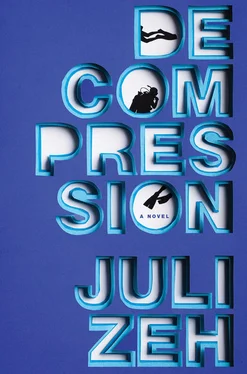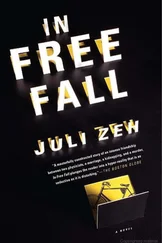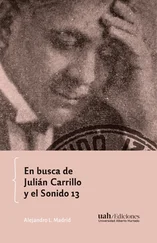
As soon as she was finished installing the navigation devices, Jola jumped onto land, pulled Theo off the bench, and sang, “Sailing, sailing, over the bounding main,” in his face. He lurched into motion, grumbling, a burned-down cigarette clamped between his pale lips. The previous night, I’d needed a full hour to tear him away from his audience. He couldn’t retell the tale of Jola’s defeat often enough. How she’d spent the past weeks preparing for the role of Lotte Hass. How she’d read books, taken a diving course, even pinned a photograph of the lady in question to the wall over her bed. How she’d made her future, her happiness, and her very self dependent on being allowed to play Lotte. And now: Yvette Stadler. Theo didn’t seem to notice how embarrassing his behavior was. Or didn’t care. He told us again and again that it was the end of Jola. The end of arrogance and pride. From now on, he said, she’d be nothing but grateful if someone should volunteer to attend her slow decline. Her daily aging into insignificance. He, Theo, was prepared to perform that service. He could imagine no finer occupation than observing and documenting Frau von der Pahlen’s disintegration. Preferably over the course of decades. The slower and more excruciating, the better. In the end, Theo said, he would turn this story into the novel of the century. A thousand-page metaphor for an undignified age. Only Thomas Mann’s Buddenbrooks would be comparable to it in scope and importance. This evening was the end of Jola and the beginning of a tragic masterpiece.… Theo kept talking like a maniac. At some point, I grabbed him under the arms and pulled him off his chair. I didn’t so much support as carry him up the steep stairs. Corpses and drunks are heavy when they’re not floating in water.
Now Jola cried out, “Come on, old man! You of all people should try to enjoy our little excursion. You don’t have much time left.”
I figured this was a joking reference to his alcohol and tobacco consumption, but Theo seemed to take Jola’s words literally. “What does that mean?” he asked. “Time for what?”
They were facing each other, standing near the quay’s edge. Swaying a little on the brink of the abyss , I thought. Their favorite position .
“For taking boat trips,” said Jola. “After all, you’re flying home on Saturday.”
“And you aren’t?”
For the next few seconds, we stared at Jola as if she were an oracle about to deliver the final pronouncement on our fates. I suddenly imagined, with crystal clarity, what it would be like if she should disappear into the sky above the airport on Saturday afternoon. She’d be at my side — and a moment later she’d be gone, vanished, as if she’d never existed.
Jola raised her nose to the wind and gave her verdict: “North, eleven knots. Ideal conditions. Like sailing on a duck pond.”
She saw the looks on our faces and laughed. Then she jumped back on deck, verified that my gear was loaded on board, and started the diesel engine. A few minutes later, we reached the end of the breakwater and chugged out into the open sea. A little to the east, the first ferry to the neighboring island was getting under way. Theo sat on the bow, waiting for the invigorating effects of the north wind. Jola stood at the helm. She didn’t look as though she needed any additional tips from me. I left it up to her to hold the course and started my diving preparations. The trip out wouldn’t take more than an hour, and for starters, the urinary sheath required several minutes. Sitting on deck with my back against the wheelhouse, I rolled down my swimming trunks and slowly massaged myself until I reached the proper degree of stiffness. I dedicated the utmost care to fitting the sheath and applying the adhesive tape. If the sheath slipped off, I’d have no choice in the coming hours but to pee in my wet suit. On the other hand, I’d been in the Red Sea with an experienced diver who suffered a contusion of the ureter because he’d taped too tightly. Eighty meters down, he was seized by the most fearsome pains. A quick ascent to the surface was not an option, not at that depth. Never. Not at eighty meters, and most certainly not at a hundred. As my army diving instructor used to say, when you’re deep underwater, you’ve got a glass ceiling above your head. You solve your problems down there or not at all. I knew enough stories about people who’d died while on dives. In most cases, it wasn’t even possible to track down what had gone wrong. I preferred to go over every detail twenty times and come back up alive.
I put on my undersuit and wet suit. Fastened the hose to the urinary sheath. Checked fins, mask, gloves, hood, weight belt, dive light, backup dive lights, battery packs, knife, camera, surface marker buoys, reels, plastic bags, dive computer. Sat on the boat rail and breathed into my back. Now I could feel the aftereffects of the previous night’s drinking. A slight dizziness, a throbbing at the temples. Under normal circumstances, residual alcohol would have been a reason to call off the expedition. But this wasn’t a normal situation. It was — I don’t know what it was. A desperate attempt at self-assertion. I forced myself to concentrate. The last minutes before a dive were the most important of the entire expedition. I turned my gaze inward, went over all the points of my gas plan one more time, visualized every single movement. My intensity seemed to rub off on Jola and Theo. They maintained a resolute silence. The farther the Aberdeen got from land, the more the onboard tension increased. Even Theo looked as though he was slowly coming to full consciousness. When he wasn’t squinting at the Atlantic, he was eyeing me thoughtfully. I didn’t try to sustain his gaze. I was glad to have a day when he wasn’t my responsibility. I could keep my mind on more important matters than the question of what was up with him.
The diesel engine’s decibel level and stroke rate diminished, the steady noise of the bow wave became softer and then fell silent. I joined Jola on the narrow helm stand and looked at the GPS. She’d hit the coordinates exactly and had moreover maneuvered the boat into the best anchoring position. The depth sounder showed an elevation in the ocean bed. The wreck lay a little east of us, around 107 meters down. Its outline was clearly recognizable on the sonar screen. I placed my hand between Jola’s shoulder blades so that she’d know how proud I was of her. She pushed past me and prepared to cast the anchor. No one had spoken a word since we left the harbor. At that point, I no longer doubted that the expedition would go off without a hitch. All Theo had to do during the three hours of the dive was to watch the water surface and look out for my buoys. If he should prove unreliable, Jola would share the task with him. She’d keep one eye on the instruments and the other on the Atlantic. Bernie and Dave were good, but when it came to boats, Jola was obviously better than the two of them together.
I spent the next ten minutes fastening seventy kilos of equipment to my body with snap hooks. The six cylinders with the different gas mixtures seemed particularly heavy. I was sweating feverishly in my hermetically sealed dive suit. The biggest challenge consisted in standing up, fully outfitted, in the rocking boat, making my way to the stern, and putting on my fins. When I was finished, Jola gave me the “okay” sign, and I responded in kind. I’d just as soon have gone over the side amid general silence, but Theo had constructed a question out of his various preoccupations, and he just had to ask it. He took hold of my wrist to prevent me from dropping into the water before he could speak.
Читать дальше













